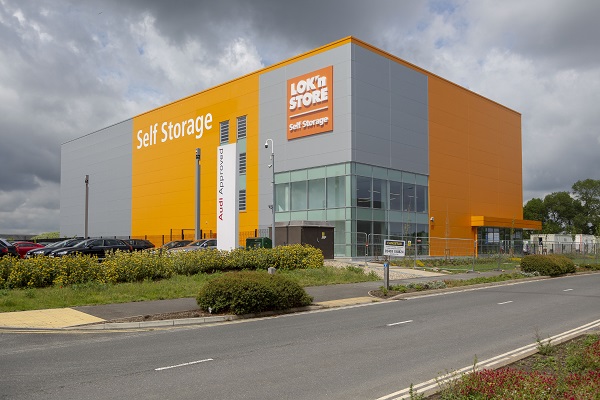Five AIM stocks for an inheritance tax ISA in 2022
25th February 2022 15:20
by Andrew Hore from interactive investor
One way of potentially paying less inheritance tax is to build a portfolio of eligible AIM shares. Our award-winning AIM writer Andrew Hore explains how to do it and names a handful of stocks he’d tuck away for the long term.

Whether they are held in an ISA or in any other way, the basic requirements for an inheritance tax (IHT) relief investment are the same. In order to gain the benefit of passing on AIM investments without them being eligible for inheritance tax the shares have to be held for at least two years. That means it does not matter if the share price rises in the first few months if it then slumps over the longer term. It is important that the shares at least hold their value and hopefully become worth more over time.
The AIM companies should be ones that have a steady business that is not too volatile. It is difficult to be absolutely sure about this, though, as the events of the last few years have shown.
The five companies that make up my recommendations for this ISA portfolio are all relatively large AIM companies, cash generative and dividend paying. The companies need to stay on AIM to be eligible for IHT relief.
- Learn with ii: Inheriting an ISA | Can I Transfer an ISA to Someone Else? | Open a Stocks & Shares ISA
And there is no guarantee that will happen – ASOS (LSE:ASC) has just moved to the Main Market. Also, companies can be taken over. It is no good trying to second guess these things, but it is something to be aware of.
Current stock market conditions mean that share prices may continue to decline with the market, so there could be better buying opportunities. Watch them closely.
- 10 ways to minimise inheritance tax
- Five AIM share tips for 2022
- Shares for the future: three top stocks and reducing IHT
CVS Group
Share price: £16.24
Veterinary practices owner CVS Group (LSE:CVSG) did well during the Covid lockdowns, which indicates its resilience. According to the January trading statement, first-half revenues were 11% ahead and underlying growth was faster if one-off Covid testing revenues are excluded. Margins are edging up. Net debt is £63.2 million.
Analysts expect the underlying growth rate in the pet care market to be faster than UK GDP. CVS has a 10% market share of veterinary practices. A 1% like-for-like increase in revenues could add at least 5% to earnings per share. There will be organic growth supplemented by acquisitions. Management has a good acquisitions record, but they will not be as important as in the early days of the business.
It was a setback to the company’s acquisition strategy that the Competition and Markets Authority (CMA) believes the purchase of Quality Pet Care could substantially lessen competition in five locations in England, including Portsmouth and Bristol. CVS management is reviewing the decision. It may make it difficult to execute larger acquisitions, although the UK market share is low enough for acquisitions that do not have any great overlap with existing practices.
The CMA announcement gave the share price a knock. Taking the consensus 2021-22 pre-tax profit forecast of £72.8 million, the shares are still trading on more than 20 times prospective earnings. CVS pays a growing dividend, but the yield is modest at around 0.5%.
Smart Metering Systems
Share price: 688p
Smart Metering Systems (LSE:SMS) has built up a large recurring revenue base from installed smart meters. Index-linked annual recurring revenues grew 12% to £85.9 million by the end of 2021. SMS has 4.2 million meter and data assets. This provides a strong base and there is a smart meter installation pipeline of 2.55 million meters. The upheaval in the energy supply market does not appear to be affecting smart meter installations by the company.
There are also medium-term plans for investing in other assets with long-term recurring revenues. The focus is grid-scale battery storage, which is used by grid operators as a balancing service for peaks in demand and store excess renewable energy where production can be intermittent. SMS is already operating 50 megawatt (MW) of battery storage. The total pipeline of grid-scale projects is 620MW.
Electric vehicle, or EV charging infrastructure is another area with potential for SMS, which is seeking opportunities in the domestic and destination charging markets.
- AIM ISAs explained
- AIM share tips review 2021: twice as good as the FTSE 100
- Read more AIM articles by Andrew Hore here
Chief executive Alan Foy is stepping down at the beginning of March. He has granted security over 5.05 million shares to Bank Julius Baer in Guernsey after they made a loan to him. He retains full control of 900,000 shares. Tim Mortlock will become chief executive.
Pre-tax profit will be slightly ahead of previous consensus expectations at £17.9 million, rising to £20.2 million for 2022. Net cash was £118 million at the end of 2021. One of the additional positives for SMS is that it offers a yield of nearly 4%.

Lok’nStore
Share price: 980p
Self-storage operator Lok’nStore (LSE:LOK) has gone from strength to strength in recent years. It has been accelerating its development of new storage sites and it can take around three years for sites to mature. This means that there is long-term growth to come from sites recently opened as well as those that are still maturing. Lok’nStore is also lower rated than its fully listed rivals Safestore and Big Yellow, which are trading on much higher premiums to net asset value (NAV), despite Lok’nStore earnings growing much faster
In the year to July 2021, strong demand for space meant that occupancy rates improved from 69.6% to 85.8%, with new sites filling up faster than ever. This enabled a year-on-year increase in prices of 8.7%.
There is already a pipeline of 12 new sites, which can be funded from existing resources. Three additional sites are with the lawyers and should be secured in the coming months.
The sale of four sites, which will continue to be managed by the company, has brought in £37.2 million, although there is a small negative in terms of profit. Following the cash inflow, broker finnCap estimates loan to value of 8%. Net debt is expected to be £30.6 million at the end of July 2022. Lok’nStore recently extended its bank facility to £100 million so there are no worries financing new sites.
finnCap has upgraded its July 2022 NAV forecast to 822.1p a share, rising to 892.7p a share one year later. Lok’nStore also has a steadily growing dividend, which is well covered by cash generated by operations, and the prospective yield is 1.7%.
EMIS
Share price: £12
Healthcare IT systems supplier EMIS Group (LSE:EMIS) is the market leader in clinical software for GPs and pharmacies. It is highly cash generative, and it has been ploughing the cash back into developing the cloud-based EMIS-X which will bring together all the company’s software. This software will be an important component of making the NHS more efficient and bringing down the record waiting lists.
EMIS achieved 2021 results ahead of the top end of estimates. Recurring revenues account for more than four-fifths of total revenues. A pre-tax profit of £41.9 million is anticipated, rising to £45 million in 2022.
EMIS-X will be important for longer-term growth, and it is close to completion. The first modules are being rolled out.
- Lee Wild's AIM share for 2022
- Why is everyone talking about ISAs?
- Check out our award-winning stocks and shares ISA
Net cash was £64 million at the end of the year. After the year end, EMIS acquired Edenbridge Health for £4 million. Edenbridge software provides real-time information for GPs. This leaves plenty of cash for further acquisitions.
The strong cash generation also allows EMIS to provide a steadily growing dividend – the average annual increase is more than 10%. EMIS was one of the few companies to continue to pay and grow the dividend in 2020. The 2022 forecast dividend is 38p a share and the prospective yield is just over 3%.
Focusrite
Share price: £10.25
Professional and hobby audio equipment supplier Focusrite (LSE:TUNE) has a good reputation in its market, and it is using its cash flow to acquire other niche brands. This includes loudspeakers supplier Martin Audio and synthesiser brand Sequential.
Focusrite differs from the other companies, which are primarily UK-focused, in that it has a broad geographical spread of business. North America has been the fastest growing region.
Last year benefited from increased demand due to Covid lockdowns - organic growth was 28% in 2020-21 – and Focusrite has managed to cope with supply and component challenges. That unusually high growth is why revenues and pre-tax profit are set to be flat in 2021-22. Profit growth is not expected to be spectacular over the next couple of years, but Focusrite is good at beating estimates. There is also potential for add-on acquisitions.
There was net cash of £17.6 million even after spending £13.9 million on Sequential during April, plus £40 million of unused bank facilities. The fall in the share price in the past six months has reduced the prospective multiple to around 22. The dividend is growing, but the yield is only 0.5%.
When Focusrite floated less than eight years ago the market capitalisation was £73.2 million at 126p a share.
Andrew Hore is a freelance contributor and not a direct employee of interactive investor.
Andrew was recently named Journalist of the Year at the 2021 Small Cap Awards.
These articles are provided for information purposes only. Occasionally, an opinion about whether to buy or sell a specific investment may be provided by third parties. The content is not intended to be a personal recommendation to buy or sell any financial instrument or product, or to adopt any investment strategy as it is not provided based on an assessment of your investing knowledge and experience, your financial situation or your investment objectives. The value of your investments, and the income derived from them, may go down as well as up. You may not get back all the money that you invest. The investments referred to in this article may not be suitable for all investors, and if in doubt, an investor should seek advice from a qualified investment adviser.
Full performance can be found on the company or index summary page on the interactive investor website. Simply click on the company's or index name highlighted in the article.
Disclosure
We use a combination of fundamental and technical analysis in forming our view as to the valuation and prospects of an investment. Where relevant we have set out those particular matters we think are important in the above article, but further detail can be found here.
Please note that our article on this investment should not be considered to be a regular publication.
Details of all recommendations issued by ii during the previous 12-month period can be found here.
ii adheres to a strict code of conduct. Contributors may hold shares or have other interests in companies included in these portfolios, which could create a conflict of interests. Contributors intending to write about any financial instruments in which they have an interest are required to disclose such interest to ii and in the article itself. ii will at all times consider whether such interest impairs the objectivity of the recommendation.
In addition, individuals involved in the production of investment articles are subject to a personal account dealing restriction, which prevents them from placing a transaction in the specified instrument(s) for a period before and for five working days after such publication. This is to avoid personal interests conflicting with the interests of the recipients of those investment articles.